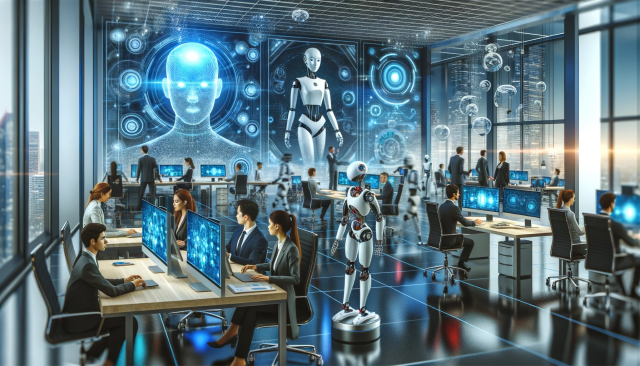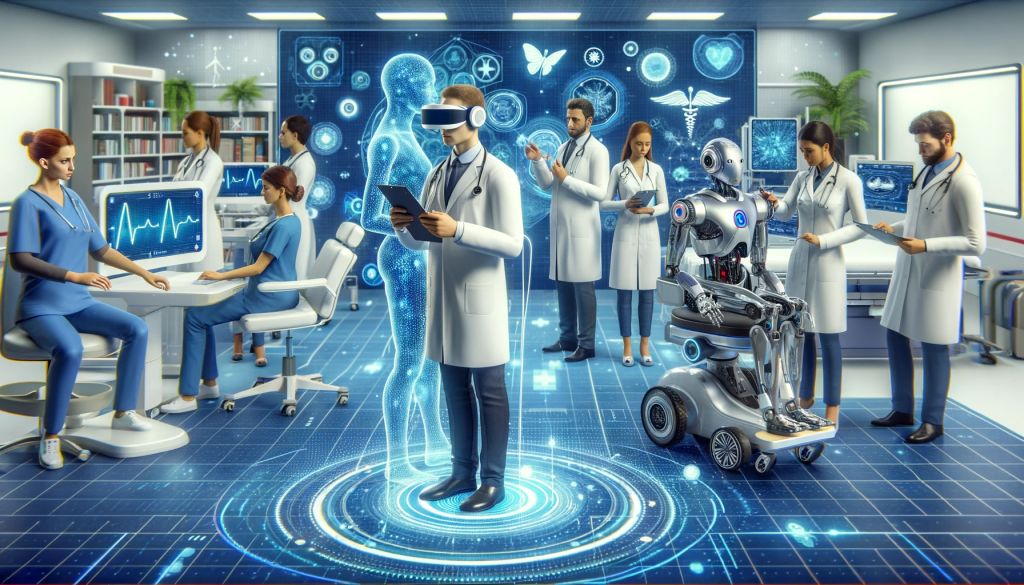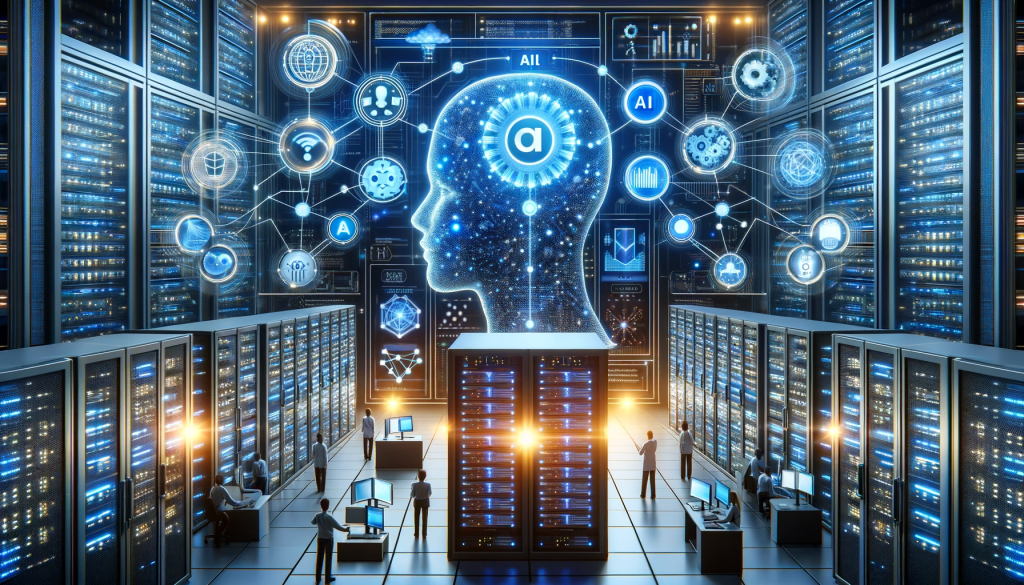
Introduction
Artificial Intelligence (AI) has transitioned from science fiction to a key driver of technological innovation, touching almost every aspect of our lives. Its evolution over the last few decades has been nothing short of extraordinary. From the early days of simple machine learning algorithms to today’s sophisticated neural networks, AI has continuously redefined its boundaries. The current state of AI is a testament to human ingenuity, offering solutions that were once deemed impossible.
AI in Everyday Life
One of the most visible impacts of AI is in our everyday lives. Smart assistants like Amazon’s Alexa and Apple’s Siri have become household staples, integrating AI into our daily routines. These assistants use natural language processing, a branch of AI, to understand and respond to our commands. Home automation systems, powered by AI, not only provide convenience but also enhance energy efficiency and security.
AI’s presence extends beyond the home into our personal devices. Smartphones now come equipped with AI-driven features such as personalized recommendations, voice recognition, and enhanced photography capabilities. AI algorithms analyze user data to provide customized experiences, making our devices more intuitive and user-friendly.
AI in Business and Industry
The influence of AI in business and industry is profound and growing. In manufacturing, AI-driven automation is revolutionizing production lines. Robots equipped with AI are capable of performing complex tasks with precision and efficiency, leading to increased productivity and reduced costs. AI is not only about replacing manual labor; it’s also about enhancing the capabilities of human workers, enabling them to focus on more creative and less repetitive tasks.
In the realm of logistics and supply chain management, AI is a game-changer. It offers advanced solutions for inventory management, demand forecasting, and route optimization. AI systems can analyze vast amounts of data to predict supply chain disruptions, allowing companies to proactively adjust their strategies. This level of efficiency was unimaginable a few years ago and is now becoming the standard in industries worldwide.

AI in Healthcare
Healthcare is another sector where AI is making significant inroads. In diagnostics, AI algorithms are used to analyze medical images like X-rays and MRIs with a level of precision that matches, and sometimes surpasses, human experts. This not only speeds up the diagnosis process but also helps in detecting diseases at earlier stages, improving patient outcomes.
AI’s role in treatment planning is equally groundbreaking. By analyzing patient data and medical literature, AI can suggest personalized treatment plans that consider individual patient characteristics. This approach is particularly beneficial in complex cases like cancer, where every patient’s condition is unique.
Moreover, AI is playing a pivotal role in medical research. It accelerates the pace of research by rapidly analyzing scientific data, helping in the discovery of new drugs and treatment methods. This not only speeds up the development process but also opens up new avenues for treating diseases that were previously thought incurable.
AI and Big Data
The synergy between AI and big data is transformative. AI thrives on data; the more data it has, the more accurate and effective it becomes. In the realm of big data, AI is the key tool that makes sense of the immense volumes of information generated every second. From social media feeds to transaction records, AI algorithms analyze and extract meaningful insights that would be impossible for humans to discern at such scale and speed.
Predictive analytics is a prime example of this synergy. By processing historical data, AI can forecast trends, consumer behavior, and potential market shifts. This is invaluable for businesses in strategizing and decision-making. In sectors like finance, AI-driven predictive models are used for risk assessment, fraud detection, and investment strategies, transforming how financial institutions operate.

Ethical Considerations and AI
As AI becomes more integrated into our lives, ethical considerations are increasingly important. One of the primary concerns is the issue of bias in AI algorithms. Since AI systems learn from data, they can inadvertently perpetuate and amplify biases present in that data. This is particularly concerning in areas like criminal justice or hiring processes, where biased AI could lead to unfair or discriminatory outcomes.
Another ethical aspect is the impact of AI on employment. While AI creates new job opportunities, it also poses a risk to existing jobs through automation. The challenge lies in ensuring a balance where AI enhances job quality and productivity without leading to significant job displacement.
Privacy is also a crucial concern in the age of AI. With AI’s ability to analyze vast amounts of personal data, there’s a fine line between useful personalization and invasion of privacy. Ensuring that AI respects user privacy and adheres to ethical data usage is paramount.
The Future of AI Technology
As we look to the future, the potential of AI technology continues to expand. One of the emerging trends is the advancement in machine learning techniques, such as deep learning, which allows AI systems to learn and improve from their experiences, much like humans do. This is leading to more sophisticated and autonomous AI systems capable of handling complex tasks.
Another trend is the integration of AI with other cutting-edge technologies like the Internet of Things (IoT) and blockchain. The combination of AI and IoT is enabling smarter and more interconnected devices that can operate independently and make decisions based on real-time data. Blockchain’s incorporation enhances security and transparency in AI operations, especially where data integrity and trust are essential.
Furthermore, AI is set to revolutionize industries like energy, where it can optimize renewable energy usage, and education, where personalized learning experiences can be created for each student. The potential for AI to contribute to solving some of the world’s most pressing problems, like climate change and healthcare crises, is immense.
Conclusion
The impact of AI on our world is undeniable and growing every day. From simplifying daily tasks to solving complex global issues, AI is not just a technological marvel but a catalyst for future innovation and improvement. As we embrace this future, it is crucial to balance the benefits of AI with mindful consideration of its ethical and societal implications.
In conclusion, the future of AI holds both immense promise and significant responsibility. By continuing to innovate responsibly, we can harness AI’s full potential to not only change the world but to make it a better place for future generations.











































